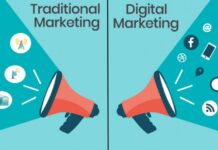What is a CRM?
CRM stands for “Customer Relationship Management” and is a software tool that allows businesses to more effectively target sales, build new customer relationships, improve existing customer relationships, and maximize marketing efficiency. CRM tools prompt employees to input relevant information into the system, so it may be used again to better understand each customer. Another key component is lead generation to find new customers, which sometimes uses information from other avenues, such as LinkedIn.

CRMs take sales to the next level by analyzing – and even predicting – potential customer behavior. Additionally, the data can be analyzed in various ways via built-in or custom-designed reports which present suggestions to management. They often can also bring in data from various other sources, including other apps and tools they can integrate with. CRMs are known for serving real-time data, resulting in high accuracy of reports, as well as instant sharing of information amongst employees. Given this, they’re also known for streamlining employee collaboration. There are built-in tools for employees to easily work together on projects, support each other, and they can usually do so from any location, not just the office!
Top 5 CRM Tools
Microsoft Dynamics 365
Microsoft Dynamics 365 offers a well-rounded system covering all the bases and then some. Employees at several different levels and capacities can enjoy the benefits this tool offers. Marketers can track their campaigns and send customer information to the sales team. Salespeople receive quick access to financial information and learn about leads worth pursuing. The human resources team can track important issues for employees to improve company retention and worker satisfaction. Computer support in London from Computers In The City is just one example of how individuals or companies in any industry can use this product. They particularly love the way the CRM tool integrates so intricately with other Microsoft products already in use. This means information from Flow and Power BI can be combined with information collected using the CRM product, resulting in a very accurate look at data analytics for the users.
Pro’s
- Intuitive interface for the user, familiar with Microsoft
- Intuitive system that makes connections about customers, giving employees insight
- Seamless integration with other Microsoft products: Office, Sharepoint, Outlook, Power BI
- Extensive customizations
Con’s
- Difficult to get a price quote
Hubspot
This CRM tool is great for companies new to using CRM. It has a very easy-to-use interface to ensure users adapt quickly. The basic features are free, so it’s a nice introduction to CRM without too much investment. Hubspot can be set up quite easily and can immediately streamline data entry with its calendar and email integration. It doesn’t have the same level of features offered as some of its competitors but is still a solid choice.
Pro’s
- Intuitive interface
- Free version
- Great email integration
Con’s
- Some kinks to be worked out because it is so new
- San be pricey when adding on new features
Apptivo
Apptivo’s competitive edge is its highly usable mobile app and extensive level of customizability. Upon set-up, users can choose from over 40 apps to manage every aspect of the company. Its workflow features are advanced with “triggers” that can be based on customized rules, or by recognizing patterns over time. All-in-all, it offers great flexibility for a not-so-high price.
Pro’s
- Constant support available
- Highly functional mobile app
- Competitive Pricing
Con’s
- Integrations are custom-done
- Migrating data from other software is tedious
Salesforce
Salesforce is the original, classic cloud-based CRM tool that started them all in Silicon Valley of San Francisco. Some of the higher-tiered options allow for advanced workflow and automation, custom app development, and history tracking in reporting. A highlight is the highly customizable dashboards that graphically display real-time company data, and the unique ability to create multiple dashboards containing different sets of data. It also offers a way to customize the automation of tasks, data entry, calendar updates, etc. Its AI Unit – aptly named Einstein – is quite advanced as far as predictive analytics are concerned.
Pro’s
- Free 30-day trial
- Many 3rd-party apps available for integration
- Excellent workflow and user collaboration
- Highly customizable
Con’s
- The higher initial time investment to learn the software
- Can be expensive with some extra features
Zoho
Zoho offers an advanced set of features, an easy-to-use interface, and nice integrations for a decent price. If your company already uses the suite of Google apps and tools, like Calendar, Gmail, and Docs, they’ll sync nicely with Zoho’s features. They‘ve also partnered with LinkedIn so that one can remain using the Zoho platform while gaining information from LinkedIn. It’s also nice that Zoho follows a pay-as-you-go model, meaning that a company can add and take away features as it deems necessary or beneficial. This keeps things cost-effective.
Pro’s
- Email marketing tools are quite good
- Integrates well with Google features
- The first 10 users are free
- Solid reporting
Con’s
- Automation only for Professional Edition
Factors to Consider When Choosing a CRM:
Price
An obviously important factor. Does the tool offer pricing per user? What features are included in the pricing, and how many of those features does the company need to use?
Training
This is related to price, in that if the tool the company wishes to buy requires more training and ongoing support, a larger toll will be taken on the budget.
Also, a small business may have difficulty breaking routine so harshly with a new intensive training regimen; this requires the ability to invest initial time and energy for a learning curve and adjustment period.
Efficiency
Based on what the product offers, assess if it is actually reducing the amount of work for your team or making more work. If you need constant support from a help-desk – even for a basic task – this may not be the tool for you.
Integration
What other tools does the product integrate with? How about social media and the business phone system? Bringing in data from these other outlets will give a better analytic picture and much better inform the team on the specifics of customer interactions and satisfaction as well as target leads.
Benefits of CRM
Seamless sharing of information
Can track all customer interactions.
Increase sales
Target leads based on data-fed intelligence.
Track marketing tasks
and analyze effectiveness.
Automation
of the business process, saving time and error on admin tasks.
Use of AI
to change business decisions and inspire new ideas.
Integration
with other systems for pooled data resources and analytics.
Real-time data
for accuracy and management to track employee productivity.
Mobility
Accessing data on multiple devices for convenience and efficiency.
Conclusion
Using CRM tools is the best way to optimize a company’s efficiency and improve customer relationships today. There’s a good reason the CRM market is predicted to reach up to 68 billion USD by 2032. The archaic use of spreadsheets to track customer information, deduce customer satisfaction, or generate weekly reports in siloed information systems by an admin team just does not suffice for businesses competing in the modern marketplace. CRM tools do the work of an admin team – and more. They organize information in a way that specifically improves efficiency, sales, customer relationships, and even employee satisfaction.
If your business is choosing a CRM to implement, take advantage of free trials if they’re offered. It’s important to experience how the product can lighten your workload, provide new insights, and make sure it doesn’t add a cumbersome burden to previously easy tasks. Match your team’s workflow processes to what the CRM tool can do to assess whether the tool can streamline their flow. When you find the perfect CRM match for your company, make sure to implement it correctly, properly educating employees on how it can inform their decisions, rather than add extra admin tasks. Customer relations never looked so good!









































